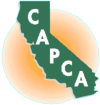CDFA Nursery Advisory Report Winter 2018
by Loren Oki and Jim Bethke
The CDFA Nursery Advisory Board met on September 18, 2017 in Sacramento. Here are highlights of the meeting:
Cannabis Update
Amber Morris, the Chief of California Cannabis (CalCannabis) licensing, provided an update of the licensing process that will be implemented on January 1, 2018. Licensing involves several California departments in addition to CDFA, including the Public Health and Consumer Affairs, Division of Cannabis Control. CDFA will be issuing licenses to produce the crop at six different levels based on size and whether the plants are grown indoors, outdoors, or in both conditions. Regulatory and other support efforts occur at several levels and involves the State Water Resources Control Board; the departments of Pesticide Regulation, Fish and Wildlife, Technology, and Justice; Treasurer’s Office; the division of Occupational Safety and Health; the Board of Equalization; the Medical Board of California; local city and county governments; and the Governor’s office; as well as California Health and Safety codes. Amber reviewed current California legislation and their impacts on the permitting process. CalCannabis will also be implementing systems for online licensing and another for “track and trace.” Amber mentioned that even if growers are properly complying with California regulations, they could still be prosecuted for violations of federal regulations.
Josh Kress is the lead for California hemp production oversight and reviewed the differences between cannabis and hemp. The main difference is that hemp cannot test at greater than 0.3% THC. It is still federally illegal, however.
PlantRight
Jan Merryweather of Sustainable Conservation’s (SusCon) PlantRight Program presented information about the program that promotes information on invasive plants. The program utilizes the Plant Risk Evaluator to assess plants for invasive potential and offers alternatives for those plants that are determined to be potentially invasive. SusCon asked if CDFA could take over the program, as it is SusCon’s model to initiate programs such as this, and then release it to others to carry on project management. The Nursery Advisory Board discussed that CDFA should not take on the program and suggested that a UC program would be better. The issue with the program is the amount of funding needed to maintain it, and there is no source of support.
GWSS Update
Just under 24,000 shipments (up 630 shipments from 2016) moved into GWSS-free zones. Five of these were rejected due to live life stages, compared to eight in 2016. There were single GWSS finds in many counties, but no detectable populations. Similar to last year, the program demonstrated that even though shipments were up, rejections were down. There were GWSS finds in traps at four nurseries, one each in Contra Costa, Alameda, Santa Clara and Tulare Counties.
As part of the program, 45 egg masses were treated on nursery stock at shipping sites in Southern California. The masses were sleeve-caged and shipped up north where ag commissioners in selected counties held the masses for emergence of GWSS immatures. No viable egg masses or immatures, however, were observed by any ag commissioner’s office for any experimental shipment.
Moringa (Moringa oleifera) is confirmed as a new GWSS host plant, and unfortunately, all plant parts are edible. There is no allowable pesticide on this kind of nursery stock. It was recommended that IR4 assist in the search for pest control solutions on this specialty crop, with emphasis on products for GWSS control.
Invasive Update
Multiple fruit fly quarantines were in place in several counties with emphasis on Los Angeles County. This pest affects nurseries with fruit-bearing trees and other plants with fruits such as ornamental peppers.
ACP/HLB.
There were 37 HLB-positive psyllids and 79 new HLB-positive trees (170 total). Current HLB quarantines were expanded and there was a new quarantine in Riverside.
SANC Update
Eight nurseries have completed a required review of their properties. One of those nurseries is under new management and probably will not be able to comply at this time. There was one new nursery prospect in California. These nurseries should start shipping next spring under the new program.
Nursery Services
Nursery licensing revisions are underway. The California Agricultural Commissioners and Sealers Association (CACASA) is involved with the licensing review.
Legislative Update
Effective Jan 2018, The Nursery Advisory Board (NAB) is an official Board, signed by Governor Brown in September 2017.
CACASA Update
CACASA and the Farm Bureau are working through a roundtable discussion about funding for Detection and Exclusion from state funds.
__________________________________________________________
Loren Oki is UC Cooperative Extension Landscape Horticulture Specialist, Department of Plant Sciences, UC Davis; Jim Bethke is Farm Advisor for Nurseries and Floriculture, UC Cooperative Extension, San Diego and Riverside Counties.












